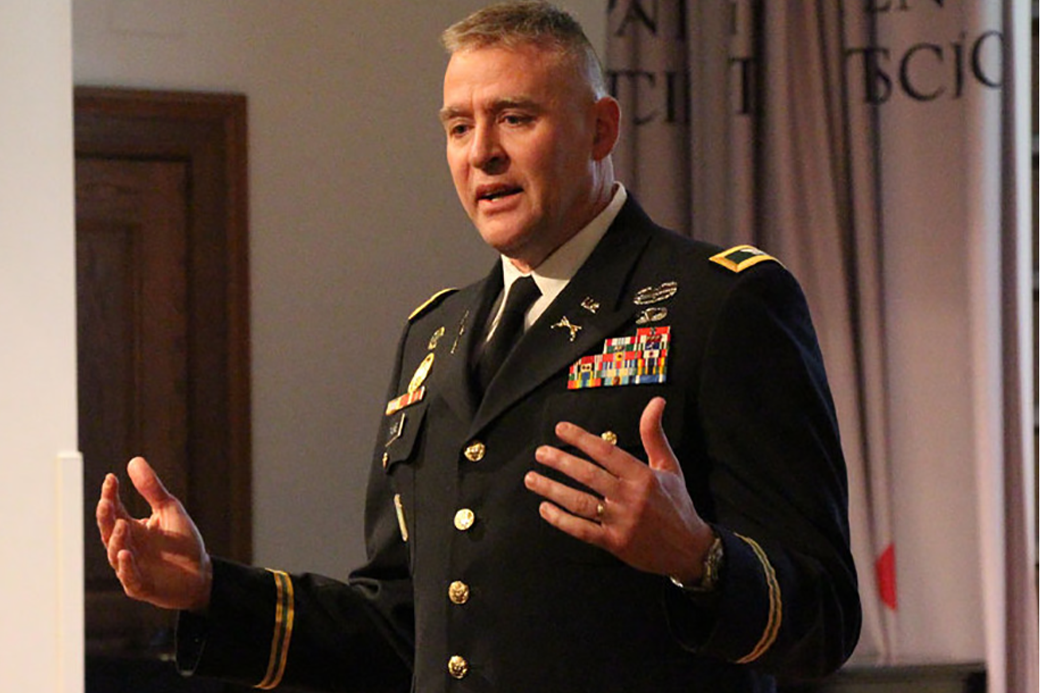
Military strategy and policy at center of forum
The Middle East, military strategy and leadership skills were just some of the things discussed in Farber Hall March 3 by a University of South Dakota alum.
Kenneth Tauke, a colonel in the United States Army, entered the military in 1983 as a private in the Military Police Corps. Since then, Tauke has climbed the ranks and recently served as the division chief for US Central Command (CENTCOM).
At the Political Science League sponsored event Tuesday, Tauke said that through his time with the Army he has learned valuable leadership skills, including the skill of dealing with unexpected problems.
“The Black Swan is an unintended thing that comes out of nowhere, like the Yemen Prime Minister and his government being run out of Yemen a month ago,” Tauke said. “We had people in Yemen, we should have seen that coming — it happened so fast, we evacuated from our embassy.”
To be a leader, Tauke said students must always be looking “beyond the horizon” and plan for the future. He said the military is always thinking about what the next step is in its strategy.
“What are we going to need in five years? Who’s going to be the enemy in five years?” Tauke said. “We have to get it right.”
Tauke said parts of being a leader include “observing other leaders, setting goals and objectives and embracing responsibility.”
On the issue of the current situation in the Middle East, Tauke said he believes CENTCOM’s strategy of bombing the Islamic State of Iraq and Syria (ISIS) while supporting Iraqi security forces and Kurdish Peshmerga is a feasible and acceptable strategy.
“The risk (to U.S. troops) is relatively low. We’re training folks in Baghdad — we’re training folks to go to Tikrit,” Tauke said.
Tikrit, a city about 95 miles to the north of Baghdad, has been held by ISIS militants since their offensive in June of 2014. On March 1 Haider al-abaci, the prime minister of Iraq, announced a major push to take back the city. On March 2 more than 30,000 Iraqi troops launched an offensive on the areas around the city.
Tauke said the Tikrit operation will prove to be a challenge to the Iraq forces to see if they can retake Mosul, the second largest city in Iraq, from ISIS in a spring or winter offensive. Currently U.S. military advisers are in the country training Iraqi forces for the planned operation.
“We’ll see hopefully in the near future that the Iraqi forces can drive them (ISIS) out of Tikrit and we’ll see where we stand,” Tauke said. “We’re hopeful that the training that they’re provided by the folks in Baghdad pays off. We’ll have to wait and see.”
(Photo: Kenneth Tauke, a United States Army colonel and University of South Dakota alum, speaks to students about military strategy and U.S. foreign policy during a forum in Farber Hall March 3. Malachi Petersen / The Volante)

